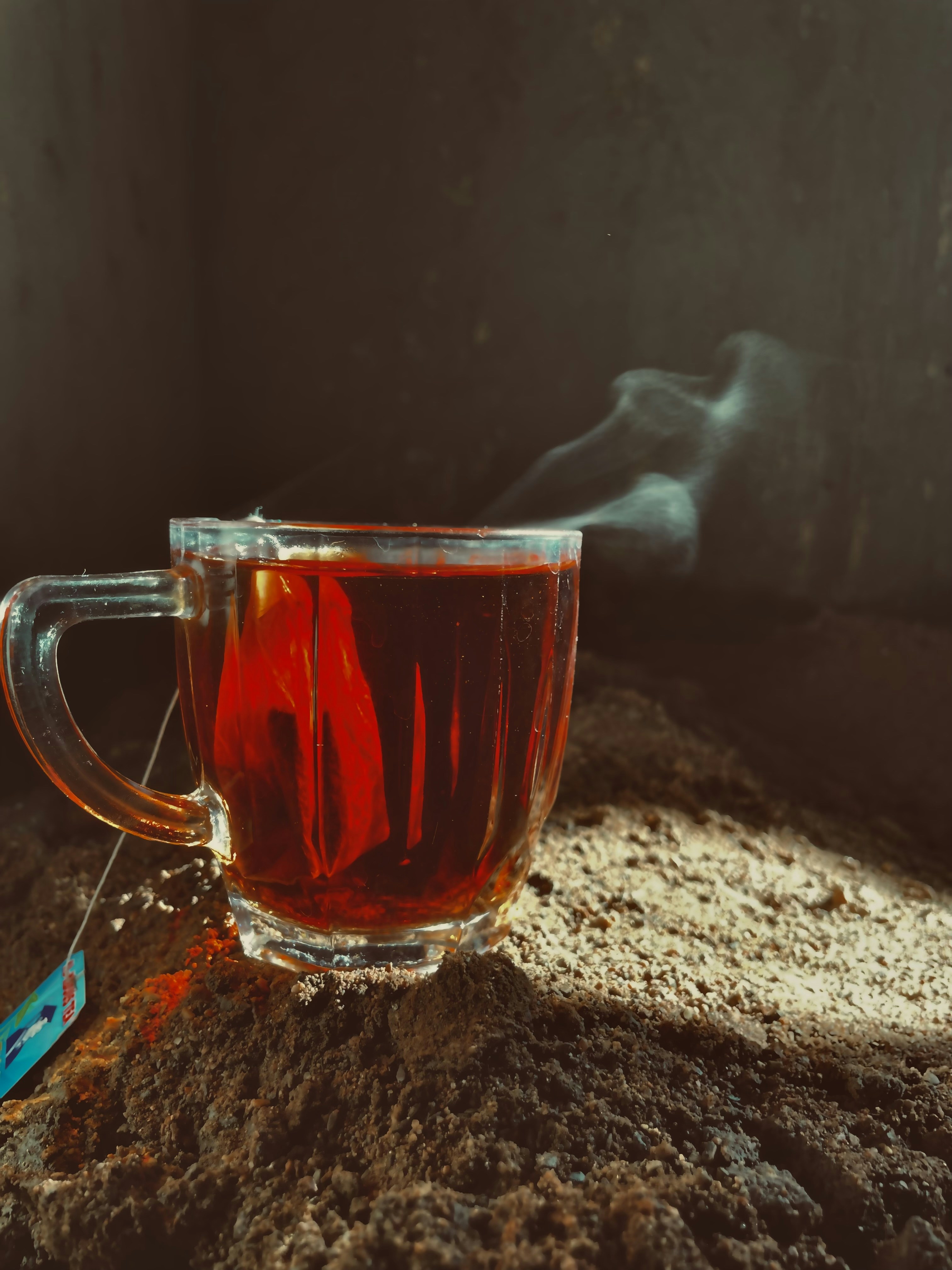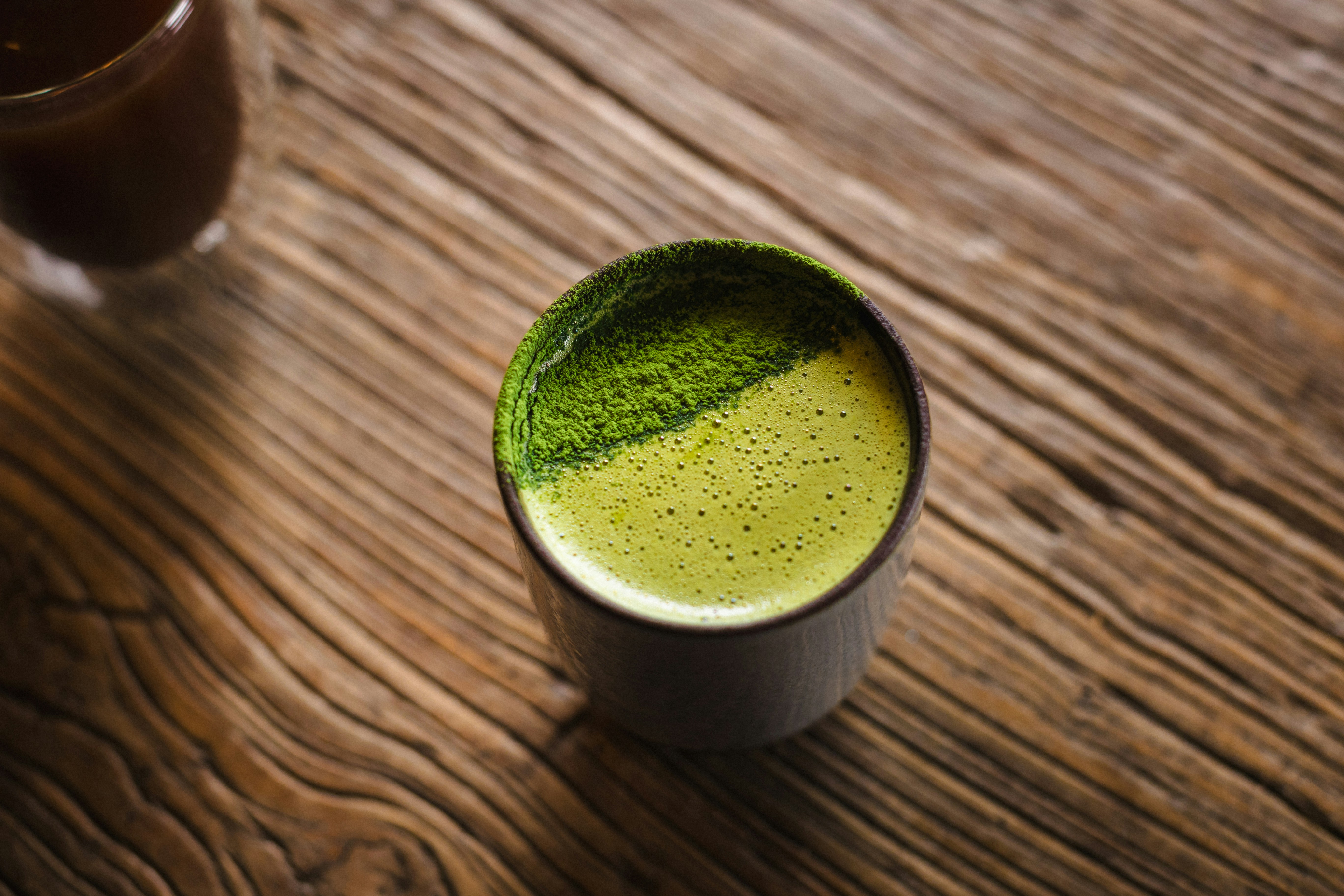Introduction: A Warm Embrace in a Cup
For centuries, black tea has held a prominent place in various cultures, serving not only as a delightful beverage but also as a source of comfort during turbulent times. The steaming cup of black tea evokes a sense of warmth and familiarity, providing solace in moments of stress or chaos. This beverage’s charm goes beyond its rich flavor; it extends to its remarkable ability to influence mood and emotional states. Numerous individuals have cherished black tea as a companion during late-night reading sessions or while unwinding after a long day.
With its deep hues and aromatic notes, black tea has a way of wrapping around the senses, offering a gentle embrace that can ease the mind. Many people find respite in the simple act of brewing a cup, inhaling the fragrant steam as it rises. This sensory experience can create a moment of respite, allowing one to take a break from the hustle and bustle of daily life. For instance, there are countless personal anecdotes where a warm cup of black tea served as a refuge, providing comfort during trying moments, whether it’s after a busy day at work or during a challenging conversation with a loved one.
The relationship between black tea and mental well-being is a fascinating topic worthy of exploration. Numerous studies suggest that the components of black tea, such as flavonoids and caffeine, can play a role in enhancing mood and cognitive function. This aspect makes black tea not just a delightful indulgence, but also a potential ally in navigating the complexities of emotional health. As this post unfolds, we will delve deeper into the surprising ways black tea can uplift spirits and foster a sense of calm amidst life’s uncertainties.
The Science Behind Black Tea: How It Affects the Brain
Black tea, a popular beverage worldwide, possesses various chemical compounds that contribute to its notable effects on mood and cognitive function. Two key constituents, caffeine and L-theanine, play essential roles in modulating brain activity and psychological well-being. Caffeine, a well-known stimulant, interacts with adenosine receptors in the brain, promoting alertness and reducing feelings of fatigue. According to a study published in the “Journal of Psychopharmacology,” participants consuming moderate amounts of caffeine exhibited heightened alertness and improved cognitive performance compared to those who did not.
In contrast to caffeine, L-theanine, an amino acid found almost exclusively in tea leaves, has calming effects that can counterbalance the stimulating properties of caffeine. Research in the “Journal of Nutritional Biochemistry” indicates that L-theanine induces relaxation by elevating levels of GABA, dopamine, and serotonin—neurotransmitters associated with mood regulation. The synergy of these two compounds creates a unique state of calm alertness, as indicated in a study published in “Nutritional Neuroscience,” which highlighted improvements in attention and task performance in users of black tea.
Furthermore, the polyphenols present in black tea, such as catechins, are known for their antioxidant properties, potentially contributing to overall brain health. A review in the “European Journal of Clinical Nutrition” has connected regular black tea consumption to a reduced risk of cognitive decline and mood disorders. These findings suggest that the combination of caffeine, L-theanine, and polyphenols not only enhances mood but also supports cognitive function, making black tea a beneficial drink for those seeking mental clarity and emotional balance. Overall, scientific evidence underscores the profound impact of black tea’s components on brain activity and mood elevation, reinforcing its status as not just a beverage, but a potential ally in mental wellness.
Cultural Rituals: Black Tea as a Mood-Lifting Tradition
Black tea holds a significant place in various cultures, serving not only as a beverage but also as a catalyst for communal bonding and emotional well-being. The act of drinking black tea has evolved into more than just a simple routine; it has transformed into a cultural ritual that significantly enhances mood and overall mental health.
One notable example is the British tradition of afternoon tea, which dates back to the early 19th century. This practice encourages people to take a break from their day, coming together to enjoy black tea paired with delicate sandwiches and pastries. The ritual of sharing tea fosters a sense of community, helps strengthen social ties, and promotes feelings of relaxation. Participants often find that this brief respite from daily stresses can be a powerful mood booster, thanks to the comforting nature of the warm beverage and the social interactions it inspires.
Similarly, in Chinese culture, the Gongfu tea ceremony elevates the experience surrounding black tea. This meticulous ritual emphasizes mindfulness and respect for the tea itself, allowing participants to connect deeply with one another. The Gongfu ceremony involves not just the preparation and drinking of tea but also a focus on the aesthetics and sensory experiences involved. By taking the time to fully engage with the art of tea drinking, individuals can experience a heightened sense of tranquility, which contributes to improved emotional health.
Across different cultures, these rituals underscore the notion that sharing black tea goes beyond taste; it serves as an important medium for connection and emotional support. These communal experiences encourage individuals to engage meaningfully, thereby contributing positively to their mood and mental state. By incorporating black tea into social practices, diverse cultures demonstrate its potential as a powerful tool for enhancing emotional well-being.
Personal Stories: Transformative Moments with Black Tea
Many individuals have found solace and clarity through the simple act of preparing and enjoying a cup of black tea during challenging times. Take, for instance, the story of Jennifer, a busy mother who often felt overwhelmed by her responsibilities. One afternoon, feeling stressed and exhausted, she decided to take a short break. Instead of reaching for coffee, she chose to brew a cup of black tea. The ritual of boiling water, steeping the tea leaves, and inhaling the rich aroma became a moment of mindfulness for her. As she sipped the warm, robust beverage, she felt her thoughts slow down, allowing her to gather her emotions and refocus on the tasks ahead. This transformative experience made her a firm believer in the calming effects of black tea.
Similarly, Michael, a graduate student facing mounting academic pressures, began incorporating black tea into his study routine. During long nights of studying, he would prepare a thermos of his favorite Assam black tea. Each cup offered him a moment to pause and reconnect with his thoughts. The caffeine in black tea provided a boost of energy without the jittery side effects he experienced with coffee. Over time, Michael noted not just improved concentration but also a significant uplift in his overall mood. The act of brewing this beverage became a cherished part of his nightly routine, imbuing him with a sense of relaxation and contentment amidst the stresses of academic life.
These anecdotes highlight how the act of making and enjoying black tea can provide emotional comfort and promote mental clarity. Many have discovered that it is not merely a beverage but rather a means to cultivate mindfulness, allowing individuals to navigate life’s challenges with a renewed perspective. The stories serve as a reminder of the powerful link between simple rituals and improved emotional wellness, showcasing black tea’s role as a gentle yet impactful ally in times of need.
The Spiritual Connection: Mindfulness and Black Tea
Black tea, with its rich flavors and aromas, offers more than just satisfaction for the palate; it provides an opportunity for cultivating mindfulness. The ritualistic aspect of preparing and enjoying a cup of black tea can serve as a powerful tool for mental clarity and emotional balance. By integrating tea drinking into mindfulness practices, individuals can create a sacred time for reflection and tranquility in their busy lives.
To begin, the first step in utilizing black tea for mindfulness is to create an environment conducive to relaxation. Find a quiet space free from distractions and gather the necessary tea-making items: loose black tea or tea bags, a pot, a cup, and fresh water. As you prepare the tea, pay attention to the sounds of boiling water and the subtle rustling of tea leaves. This intentional attention to the process helps center your thoughts and elevate your awareness of the present moment.
Once the tea is brewed to perfection, take a moment to appreciate its hues and aroma before taking a sip. Allow yourself to be fully present, experiencing the warmth of the cup in your hands, the fragrance wafting upward, and the first sip’s awakening subtle notes. Focus on the sensation of the tea flowing into your mouth and down your throat, bringing warmth and comfort. Such engagement transforms the act of drinking black tea into a meditative experience, inviting calmness and clarity to your mind.
Moreover, as you enjoy your black tea, you might consider reflecting on your thoughts or breathing intentionally. Each sip can serve as a reminder to either release negative emotions or embrace positive affirmations. This ongoing practice not only enhances your relationship with black tea but also encourages a deeper connection between your mind and body, fostering an overall sense of well-being and spiritual fulfillment.
Black Tea and Mental Health: A Supportive Ally
Black tea, a popular beverage cherished for its rich flavor and arousing aroma, offers more than just stimulation; it has been recognized for its positive effects on mental health. Its unique composition, rich in various bioactive compounds, including flavonoids and amino acids, provides potential benefits towards emotional well-being. Many research studies suggest that regular consumption of black tea may enhance mood and alleviate feelings of anxiety. The presence of L-theanine, an amino acid found in black tea, is particularly noteworthy. L-theanine is known for promoting relaxation without causing drowsiness, making it a supportive ally in times of stress.
Incorporating black tea into one’s daily routine can serve as a nurturing ritual that complements various wellness practices. For instance, taking a few quiet moments to sip on a hot cup of black tea may serve as a mindful exercise, allowing individuals to pause, reflect, and center their thoughts. This simple act can enhance overall mental clarity and emotional stability, providing a sense of calm in the midst of daily chaos. To fully enjoy the benefits of black tea, it is advisable to explore different varieties, such as Assam, Darjeeling, or Earl Grey, each with its unique flavor profile and potential wellness implications.
It is important to clarify, however, that while black tea can serve as a supportive measure for mental health, it should not be seen as a replacement for professional treatment when necessary. Individuals experiencing persistent mental health conditions should seek guidance from a qualified healthcare professional. Balancing the enjoyment of black tea with other healthy habits—such as regular exercise, a nutritious diet, and adequate sleep—can create a comprehensive approach to enhancing well-being. By integrating this beloved beverage into healthy routines, individuals may find support in uplifting their mood and fostering a sense of mindfulness and tranquility.
Practical Tips for Brewing Black Tea for Mood Enhancement
Brewing the perfect cup of black tea requires a mindful approach that can significantly enhance your mood. The process begins with selecting high-quality black tea leaves, as the flavor and health benefits are largely dependent on their quality. Popular varieties such as Assam, Darjeeling, and Ceylon each offer unique taste profiles, allowing you to choose one that resonates with your preferences. While higher-grade loose leaf teas often yield better results than tea bags, quality options are available across both formats.
Next, the water used in brewing plays a crucial role in releasing the tea’s essential oils and flavors. It is advisable to use fresh, filtered water to ensure the cleanest taste. Water temperature is another crucial factor; black tea typically requires water at a temperature of 190 to 212°F (88 to 100°C) for optimal brewing. When the water is heated to boiling point and allowed to cool slightly before pouring over the tea leaves, it helps in extracting the full range of beneficial compounds.
Steeping time is equally important. To extract the fullest flavor and health-enhancing properties, allow the tea to steep for 3 to 5 minutes. A shorter steeping time may result in a milder taste, while a longer duration could lead to bitterness. Therefore, finding the right balance is essential for enjoyment. If a more personalized flavor profile is desired, consider adding natural enhancements such as lemon, honey, or spices like cinnamon, which can further elevate your mood.
Finally, paying attention to the environment while brewing can also improve the overall experience. Brewing tea in a quiet space, accompanied by a moment of mindfulness, allows you to fully appreciate the aroma and flavors. Taking time to enjoy this process may enhance the mood-lifting qualities associated with black tea, making it an enriching practice in your daily routine.
The Connection Between Flavor and Mood: What Black Tea Can Offer
Black tea is not merely a beverage; it is an intricate composition of flavors and aromas that can significantly influence our mood and mental state. The experience of consuming black tea transcends the act of drinking and taps into the sensory perceptions that can evoke emotional responses. Different varieties of black tea, fueled by their unique flavor profiles, can elicit feelings ranging from calmness to vibrancy.
The first cultivar to consider is Assam black tea. Known for its malty and bold flavor, Assam has been linked to fostering a sense of warmth and comfort. The robust body and rich aroma can create a grounding experience, which may help mitigate stress and cultivate an uplifting atmosphere. Moreover, the presence of L-theanine in black tea may enhance relaxation and focus, supporting overall mental clarity and positivity.
Earl Grey black tea, infused with bergamot oil, offers another distinct experience. The citrusy aroma and flavor can invigorate the senses, producing feelings of happiness and a lifted spirit. Studies have suggested that the scent of bergamot may reduce anxiety, thereby promoting emotional well-being. Additionally, the pleasant taste can contribute to positive thoughts, making Earl Grey a favorite among those seeking an emotional boost.
Furthermore, flavored black teas, such as chai, blend a variety of spices that can stimulate the senses. Cinnamon, ginger, and cardamom are known not only for their rich flavors but also for their potential health benefits. These spices can invigorate both the body and mind, imbuing a sense of energy, creativity, and warmth. The multisensory experience of tasting chai often leads to a communal atmosphere, enhancing social bonds and encouraging positive interactions.
Overall, the connection between the various flavors and aromas found in black tea and their impact on our mood is both fascinating and profound. It illustrates how something as simple as a cup of black tea can influence our emotions and contribute to our overall well-being.
Conclusion: Sipping Towards Serenity
Throughout our exploration of black tea, we have uncovered its remarkable ability to influence mood and mental well-being. As a rich source of antioxidants and natural compounds, black tea serves not only as a delightful beverage but also as a potential ally in promoting feelings of calmness and improved focus. The ritual of preparing and enjoying a cup of black tea can create a moment of tranquility amidst the hectic pace of daily life, allowing individuals to reconnect with themselves and their surroundings.
Research suggests that the unique combination of caffeine and L-theanine found in black tea can enhance mental clarity and reduce stress. This potent duo fosters a state of relaxed alertness, which can be particularly beneficial during stressful situations. Additionally, the act of sipping tea often encourages mindfulness, a practice revered for its mental health benefits. By engaging in this simple yet effective ritual, individuals may find themselves better equipped to manage everyday challenges, thus contributing to an overall uplift in mood.
As we conclude this exploration, it is imperative to consider how integrating black tea into your daily routine can foster a sense of serenity and connection. Whether enjoyed solo during a quiet afternoon or shared with loved ones, black tea can serve as a powerful tool for enhancing emotional states. We encourage you to embrace your own tea rituals—experiment with different varieties and preparation methods to discover what resonates best with you. By making black tea a staple in your life, you may just find that you’re not only sipping a flavorful beverage but also cultivating a deeper sense of well-being.








Leave a Reply